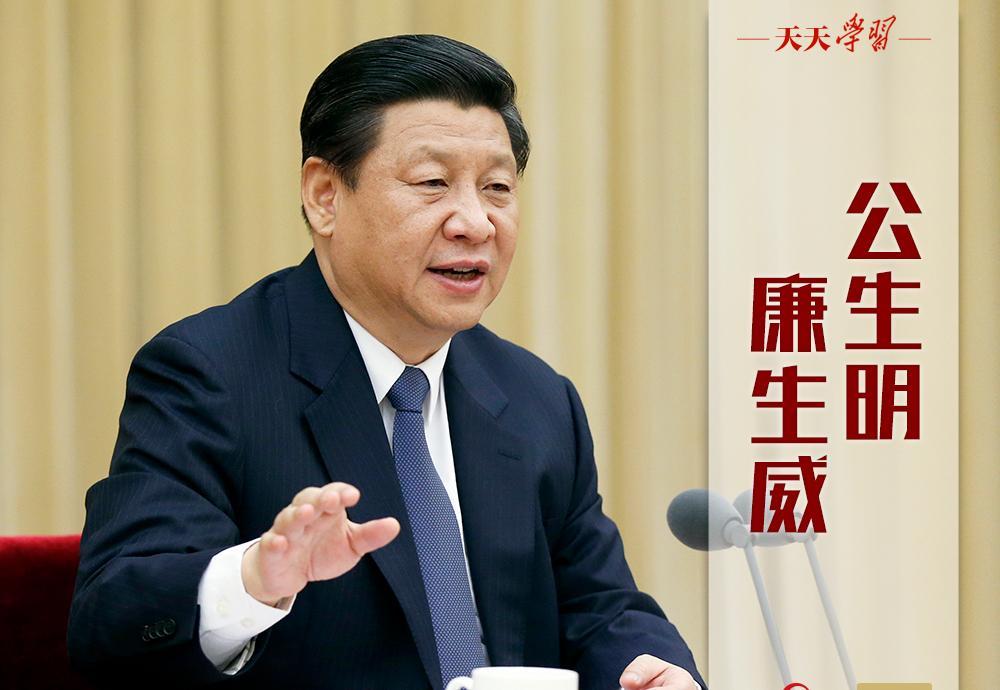
丨Learning every day丨Today is the first "Chinese People's Police Day". Recently, on behalf of the Party Central Committee, General Secretary Xi Jinping extended sincere condolences to the people's police throughout the country, and hoped that everyone would practice loyalty to the party, serve the people, enforce justice and strict discipline with practical actions, strive to build a higher level of safe China and rule of law China, make new and greater contributions to ensuring the happiness of the people, national security and social stability, and celebrate the 100th anniversary of the founding of the party with excellent results.
General Secretary Xi Jinping attaches great importance to political and legal work. On January 7, 2014, he stressed at the Central Political and Legal Work Conference that in order to fulfill the glorious mission entrusted by the party and the people, political and legal organs must strictly enforce the law and administer justice impartially. He quoted the famous saying in the ancient "Official Proverbs" as "Public Life is Bright, Honest and Virtuous", pointing out whether law enforcement and justice have credibility, mainly depending on two points: one is fairness and injustice, and the other is incorruptibility and uncleanness.
【Definition】
According to research, the words of the "Official Proverbs" were first spoken by Cao Duan, a beginner in the Ming Dynasty, and later The Inspector of Shandong, Nianfu, changed his words and sentences slightly, adding "Gongsheng Ming, Lian Shengwei" as his own motto for officials.
These thirty-six words of "Official Proverbs" can be described as a word of police strategy, sentence by sentence. It is interpreted as the most important point of the official base is two points: one is publicity; the other is honesty. Meaning: Subordinates fear me not in whether I am strict but whether I am honest; the people believe in me, not in whether I am talented but in whether I am fair in my work. Justice means that the people do not dare to be contemptuous, and incorruptibility means that subordinates dare not deceive. Only by handling things fairly can we distinguish between right and wrong, and only by being honest and honest can we establish authority.
△ Nian Fu 'Guan Zhen' carved stone
【Interpretation】
Public power is the surname of the public, and the use of power should be for the people. General Secretary Xi Jinping's emphasis at the 2014 Central Political and Legal Work Conference that "public life is bright, honest and powerful" is to insist on promoting justice with openness, maintaining integrity with transparency, enhancing the awareness of active openness and active acceptance of supervision, so that there is no room for black-box operations, so that judicial corruption cannot hide.
"Public life is bright, honest and powerful" is not only a requirement for all political and legal cadres, but also a sincere entrustment to the comrades of the whole party. Fairness and honesty are the basic virtues that politicians should have, and they must be kept throughout their lives without any slackness.
The construction of party style and clean government has always been a major event to which General Secretary Xi Jinping attaches great importance When he was the secretary of the Zhengding County CPC Committee, he presided over the formulation of the "Six Regulations on Improving the Style of Leadership," requiring leading cadres to take charge of the overall situation, grasp major issues, dare to tackle tough problems, dare to take responsibility, carry forward the spirit of nails, and pay attention to practical results in work.
In his daily work and life, he is even more honest and honest, hard and simple, strict with himself, and takes the lead in setting an example. Whether it is going to the countryside to investigate, or going out to investigate, he has paid for meals. Sometimes when the guests came, he paid for it out of his own pocket and served him with several plates of farmhouse dishes. In every move, the political character and moral sentiments of Chinese communists were displayed.
During his tenure as secretary of the Ningde Prefectural Party Committee, Xi Jinping presided over the formulation of the "Twelve Provisions" on the integrity and self-discipline of leading cadres of the prefectural party committee and the administrative department. Soon, five additional regulations were introduced. During his reign in Zhejiang, Xi Jinping grasped the construction of work style and did not relax. He asked cadres in Zhejiang to carry out their hats and not to wear them as officials, and on behalf of the Standing Committee of the Provincial CPC Committee, he made six promises of honest government to the people of the province.
Since the Eighteenth National Congress of the Communist Party of China, in the face of various problems and drawbacks existing in the Party, the Party Central Committee with Comrade Xi Jinping as the core has promoted the comprehensive and strict management of the Party with a thorough spirit of self-revolution, unremittingly promoted the implementation of the spirit of the eight provisions of the Central Committee, and continuously rectified the "Four Winds", continued to resolutely eliminate all negative factors affecting the advanced nature and purity of the Party, purified the political ecology within the Party, and promoted the continuous improvement of the Party style, political style and social atmosphere, providing an important guarantee for creating a new situation in the cause of the Party and the country. (Author Yang Lixin)
(Edited by Karasawa Yi)